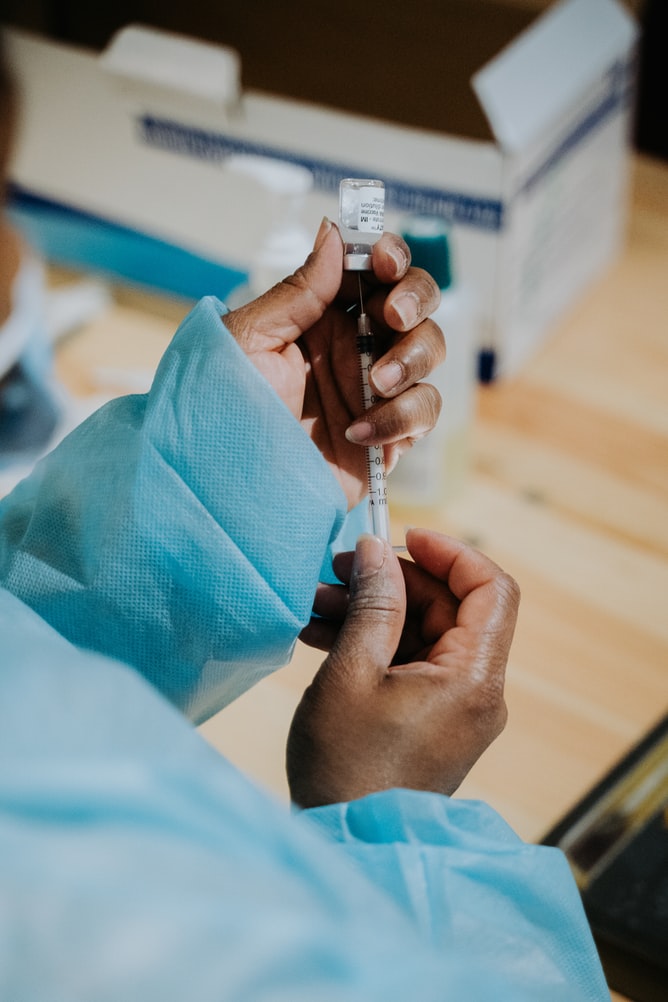With the return to in-person classes for the Fall 2021 term, some students have expressed concerns about the McGill administration’s current COVID-19 safety measures, while several faculty members have voiced frustrations about McGill’s proposals for in-person teaching during the Fall. Central to the unease about the administration’s plans for the semester is the ongoing debate about whether the university should implement a COVID-19 vaccine mandate.
In a media roundtable interview with The McGill Tribune, Christopher Buddle, associate provost (Teaching and Academic Programs), and Fabrice Labeau, deputy provost (Student Life and Learning), spoke of their confidence in the safety measures the university has set in place for the Fall term.
“I do not want to diminish how people are feeling, because a lot of people are feeling anxious and scared,” Buddle said. “We certainly have heard that from our community. But, we believe and are confident in what we are doing in terms of layers of protection in the classroom environment, so students can feel good about coming in and taking their in-person classes.”
According to Dr. Nicole Basta, an associate professor in the Department of Epidemiology, Biostatistics, and Occupational Health at McGill, the health guidelines that McGill has in place are insufficient. Basta, along with other McGill professors, is rallying for a stricter approach to preventing the spread of the virus at McGill.
“Implementing a vaccine mandate is the single most effective policy McGill could implement to protect the entire university community during this fourth wave, which is already underway,” Basta wrote in an email to The McGill Tribune. “Not implementing a vaccine mandate is contrary to all of the scientific evidence we have about how to most effectively increase vaccination rates and how best to prevent the spread of SARS-CoV-2. At the very least, McGill could require routine testing multiple times a week for those who qualify for an exemption from being vaccinated.”
The administration’s stance against enacting a university-wide COVID-19 vaccine mandate relies on the Quebec government law which states that individuals have the right to refuse consent to medical procedures, with the university’s statement defining vaccinations as such. Labeau explained that while the university can act independently in certain cases, the administration must adhere to provincial legality.
“We as the university have some autonomy as usual in fulfilling our mission,” Labeau said. “We are bound by a legal framework and so there [are] things that we simply cannot do because of a legal framework. We are definitely trying to stay in line with public health recommendations and making the adaptations that make sense in our context.”
Richard Gold, a professor in the Faculty of Law at McGill, asserts that McGill can, and should, exercise autonomy in implementing a vaccine mandate, given the increasing prevalence of COVID-19’s more contagious Delta variant in Quebec. Gold also argued that the absence of a university-sanctioned vaccination mandate is discriminatory toward faculty and students who are more vulnerable to COVID-19.
“An analysis [by] 37 professors and teachers from the Faculty of Law concluded that McGill has the full authority to bring in a proof of vaccination requirement and would not violate any constitutional or human rights requirements,” Gold wrote in an email to the Tribune.
Gold listed the main reasons why some professors are demanding the implementation of a vaccine mandate at McGill.
“There are three reasons a proof of vaccination requirement is necessary: [One], given the Delta variant, public health in Quebec has made it clear that we need the population vaccinated at the 90 per cent level; [two], it sends a message to the community that McGill believes in science and medicine and follows the recommendations of its own experts; [three], it provides a concrete reason to the hesitant to be vaccinated now, prior to infection.”









